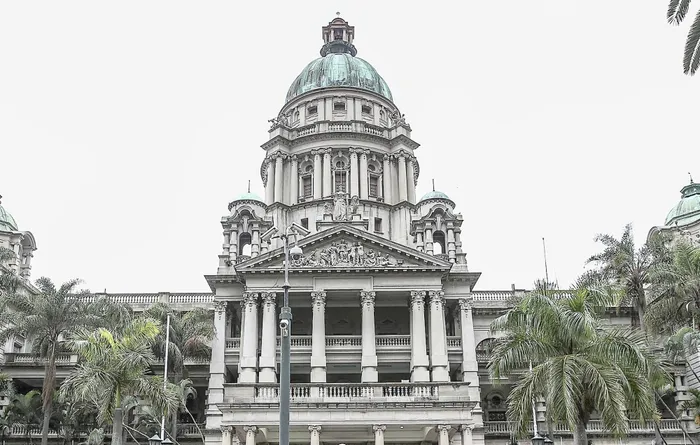eThekwini Municipality faces alarming cash collection challenges

Concerns were raised about the eThekwini Municipality’s cash collection rate.
Image: Leon Lestrade / Independent Newspapers
Concerns were raised about the eThekwini Municipality’s cash collection rate and the cash on hand for 25 days at a council meeting on Tuesday.
The eThekwini Finance Committee noted the overall financial performance analysis of the municipality as of the end of August 2025 in a budget statement report.
The report outlines the actual operating revenue of 103% of the year-to-date budget, with a variance of 3%.
The actual operating expenditure was reported as a percentage of the year-to-date budget figure of 84% with a variance of -16%.
The capital expenditure was reported to be sitting at 39% of the budget and with a variance of -61%. The capital year-to-date spent is 4.30%. The municipality has a debt of R41 billion.
The report noted that the cash collection rate of 92% is lower than 99% during the same period last year. The committee expressed reservations on the cash on hand reported to be 25 days, excluding unspent grants, mentioning that this was not in line with the National Treasury’s recommended norm of one to three months.
Emphasis was made that the municipality had to collect over 100%, to significantly reduce the debtor’s book, and to conduct an audit on grant expenditure.
The committee report noted that measures are in place to recover monies owed, mentioning that annual rates were charged to departments and funds are expected to be received by the end of October.
In terms of the discrepancies in the cash on hand, it was noted that the expenditure report was based on the cash book, while the figures reflected on the investment report were based on the available cash in the bank.
Further, the report stated that expenditure on grants is linked to contracts procured by the Supply Chain Management(SCM) Directorate, and assessments were undertaken to determine the market price, and where applicable, Section 24 of the SCM Policy is invoked to negotiate the price.
Also, the report stated that continuous audits on sampled projects were undertaken by the Internal Audit Directorate, as well as the Auditor-General, to determine compliance with SCM processes.
The committee report stated that information was also being given that, where red flags were noted in the invoices, the process of work verification is being undertaken by management before payments are made.
Councillor Thabani Ndlovu, Democratic Alliance eThekwini Caucus spokesperson, said the latest budget statement was alarming and considered it a red flag of financial mismanagement and a direct consequence of years of poor governance.
Ndlovu stated that these concerns have not only been echoed by residents, but also officially flagged by the Auditor-General.
“The DA has consistently warned about the unsustainable path, particularly the failure to manage municipal finances, the ongoing issues with debt collection, and the general decline in administrative capacity. They continue to ignore these warnings while making excuse after excuse,” Ndlovu said.
At the council meeting, DA Councillor Rory Macpherson said if a business does not collect money, then they are out of business.
“We focus on the ratepayers and utility payers to fund 4.3 million people living in the city. We do not know the exact amount of money the city is owed,” he said.
Macpherson was concerned about the delay in installing smart meters and that utility and ratepayers are being billed inaccurately and often receive overinflated bills.
He said this then leads to electricity or water disconnections.
"The municipality does not go after or focus on those who should be paying. The municipality is reliant on a small number of people who pay their way to service others. It is clear that, meeting after meeting, the same parastatals and government entities are not paying their dues,” he added.
Related Topics: